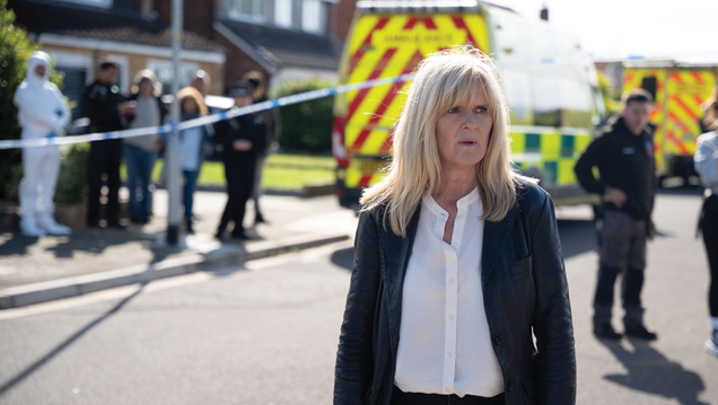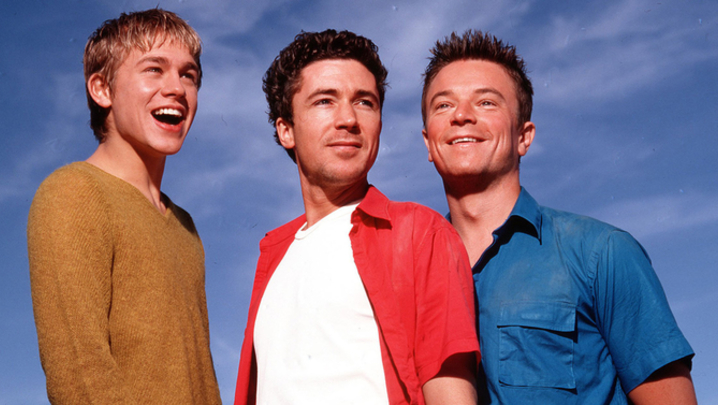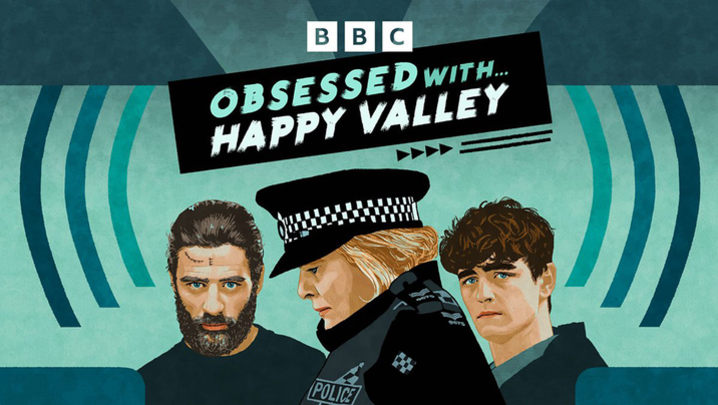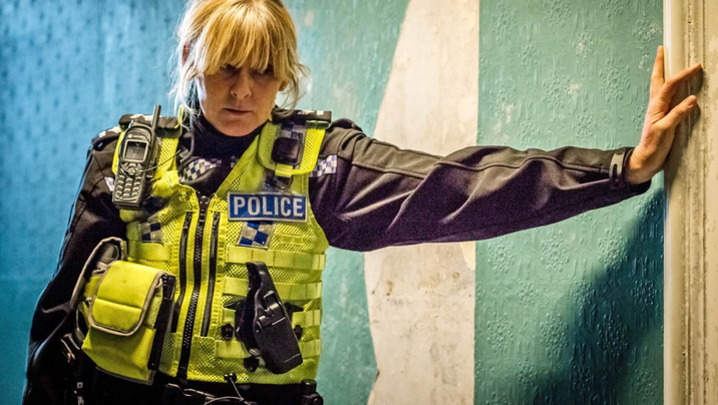Two of the UK’s most successful producers share tips on what makes a must-see show
It is the holy grail of television: launching a guaranteed, solid-gold, ratings winner. But how to do it? There were plenty of insights when Curve Media CEO Camilla Lewis questioned Andy Wilman, executive producer of Clarkson’s Farm and The Grand Tour, and Nicola Shindler, founder of Quay Street Productions. “If anyone knows how to make a hit programme it is these two,” said Lewis.
Shindler’s many hits include Happy Valley, Last Tango in Halifax and Fool Me Once, the last with 92 million viewers on Netflix. Her main ingredients for success include “brilliant stories” and that “the people I collaborate with are passionate about television and want to make really good, popular shows”.
She namechecked Russell T Davies, having worked with him on hits such as It’s a Sin: “He started out storylining on soaps and instinctively knows how to keep an audience, how to pull an audience and how to set up a story. It’s an art, but it’s a bit of a science as well.”
Wilman’s long-term collaborator is his old schoolfriend, Jeremy Clarkson; their synergy created the popular second iteration of the BBC’s Top Gear.
Part of Top Gear’s success was ensuring it was left alone, said Wilman. “I think we used to make the [office] a bit horrible because I wanted to be left alone from execs, I didn’t want notes.”
But he said one of the keys to the collaboration was Clarkson’s background in print: “First and foremost, he’s a tabloid print journalist. He trained on the Rotherham Advertiser and that element never left him.
“The print journalist thing has gone through everything we do, which in an unscripted world keeps you on track.”
"I'd much rather have 92 million people seeing my show than a good review in The Guardian"
Another reason for their success, he said, was: “We’re very coalface… Jeremy and I are like a couple of old blokes who started a baker’s shop [Top Gear] and then it becomes the size of Selfridges and then we’re like, ‘Oh fuck! I’ll go and run haberdashery, and you stay and do the bread and the shoes.’ And it got bigger and bigger, and we could not delegate to save our lives.”
He added: “I would say the coalface element is really important, because I’d die if I got into a position where you go into an edit to just give some notes about something.
“The storytelling, maybe it’s personal to me and it can’t be transferable, but I grew up with story, story, story. I was really ill when I was about five years old. I had to spend a year in hospital, immobilised. So all we had were our minds, but we had a kids’ society of five- or six-year-olds only. We couldn’t move [but] we had gangs, we had arguments. We got into trouble with the adults.”
Wilman also credits an affinity with a northern “natural ability to tell a story with dark humour” and said that Top Gear was “a vehicle for cars”, but also a taste of Friday-night entertainment on Sunday evenings.
He added: “There’s been an organic development of each show. We never sat down and planned a hit because I don’t think we were clever enough.”
Lewis suggested to Shindler that a factor in her success is that she watches the rushes of all her shows. “I don’t think there’s a different way of doing it really,” said Shindler.
“From the very beginning, when something’s an idea and it becomes a script, my job was to make sure it’s told in the best possible way.
“As soon as a production team comes on board and there’s a director, I have to see that the story and what the writer wanted, the authored voice, is translated to screen. So I can see quite quickly whether we are achieving what we set out to achieve, or whether something better’s been added to it by the production team.”
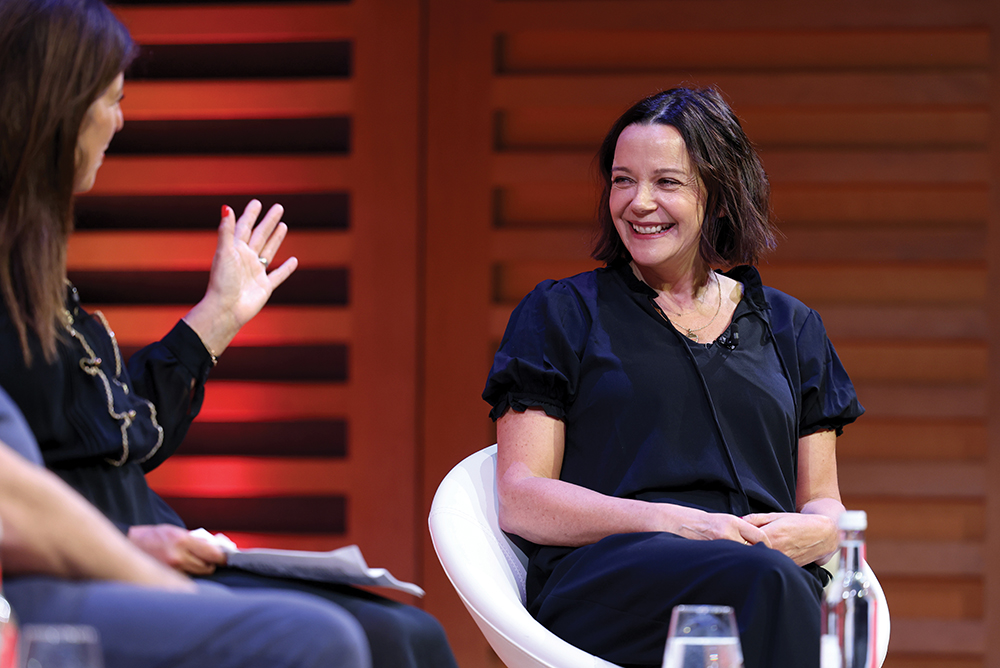
Wilman asked: “How can you tell what a good script is? Because those words are so flat on a page.”
“It’s taste, it’s instinct,” explained Shindler. She said she looks for “a story that grips me” that is “amusing because even in the darkest stories I’ve done, there’s that sense of humour, because that keeps an audience.
“I’m constantly thinking about what people want to watch [and]… my job is to make sure something is constantly surprising.”
She went on: “I’ve always watched masses of television. I grew up with soaps on the whole time. I think that’s such a brilliant education and that’s sometimes put into a category of low-brow television. To me, that’s just television.”
Lewis said there is often a snobbery around some shows, particularly when they draw large audiences. Shindler said she “would much prefer to have 92 million people watching” her shows and enjoying them, “than have a good review in The Guardian. The point of it is that people watch it, the point of it is not to get patted on the back.”
Lewis said that many within the sector are scared of failure: “I think running a company as producers, not being scared, is what you [both] do really well.”
Was Wilman ever scared while working on Top Gear and The Grand Tour? “Richard [Hammond’s] first big crash was a real wake-up,” he said. “I remember driving up the M1 and thinking, ‘Fuck me, it’s a TV show’. I’d just rung the hospital, and they [said] he’s in intensive care and we don’t know if he’s going to make it.
“We’d done everything, so you’re not thinking about who’s to blame or anything like that, because everything was in place.
“You just think, ‘He’s got a wife and two children, what are you doing?’”
Wilman said that the first series of Clarkson’s Farm was the only show that he and Clarkson worked on where they thought, “Fuck, can we really pull this off? Amazon’s scared. Jeremy’s scared… we were just scared that it would be boring.”
Session Seven: ‘The Hitmakers’. Nicola Shindler, Executive Producer and CEO, Quay Street Productions, and Andy Wilman, television producer and writer, were interviewed by Camilla Lewis, CEO, Curve Media. The producer was Diana Muir. Report by Tara Conlan.


